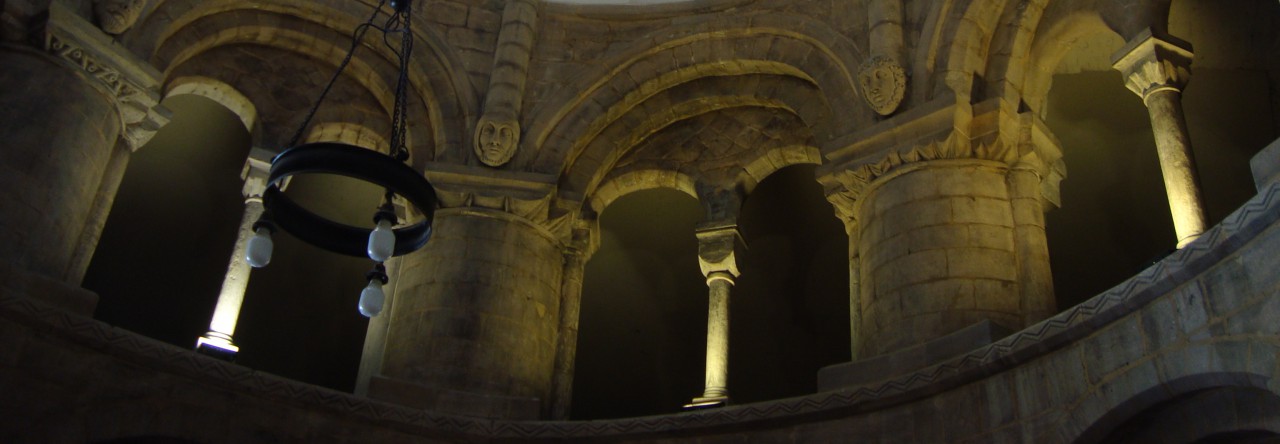
The Medici: Godfathers of the Renaissance by Paul Strathern. Pimlico, 2005.
Despite their name (medico means physician in Italian) the Tuscan de’ Medici family rose to prominence as bankers in the 14th century beginning with Cosimo the Elder. With money comes power, and by 1531 the family became hereditary Dukes of the powerful city state of Florence, then Grand Dukes of Tuscany.
Two centuries later, however, the Grand Duchy became bankrupt and then sputtered out with the death of the last Duke, Gian Gastone de’ Medici, in 1737. Over some four hundred years the family had held sway in Tuscany as monarchs in all but name.
Paul Strathern’s chronicle of the rise and fall of the Medici family charts the characters who made it as merchants, dukes, popes, queens, scientists, patrons and villains from Medieval to Enlightenment Italy.

Real characters that one can alternately cheer or boo but rarely be indifferent to, their lives are described in some detail against a backdrop of international intrigue, trade and war in a narrative that at times almost feels like fiction if we didn’t know that it really happened. Strathern strikes just the right balance between scholarship and accessibility, and the text is complemented by a selection of maps and portraits.
It’s difficult not to attribute characteristics to the faces that one can see on canvases, even ones that were painted many years after the subject had died, but one is tempted to apply adjectives like ‘ruthless’, ‘determined’, ‘arrogant’, even ‘cruel’. What rarely springs to mind is ‘humorous’, ‘compassionate’ or ‘sensitive’, but we owe the Medici some gratitude as patrons of the arts, even if it was mostly for their own aggrandisement and future renown rather than pure altruism.
Everywhere one goes in Florence stands evidence of their legacy and sometimes largesse, from former offices (now the Uffizi gallery) to the Pitti Palace (which they acquired from former rivals), from public artwork in the Piazza Signoria and the Palazzo Vecchio to work they commissioned for various churches in the city. Without their input over those four centuries Florence might not be the same gorgeous tourist trap it is today.
Repost of review first published 5th March 2014





Reminds me of the acerbic comment Orson Welles (and not Graham Greene) gave to Harry Lime in The Third Man: “Don’t be so gloomy. After all it’s not that awful. Like the fella says, in Italy for 30 years under the Borgias they had warfare, terror, murder, and bloodshed, but they produced Michelangelo, Leonardo da Vinci, and the Renaissance. In Switzerland they had brotherly love – they had 500 years of democracy and peace, and what did that produce? The cuckoo clock.” Although the Borgia and de’Medici families are not in the same political class, they certainly have similar reputations for questionable behavior.
LikeLiked by 2 people
True!
That cuckoo clock reference is cruel, but sadly Switzerland remains more famous for its clichés than any solid facts about the country.
LikeLiked by 1 person
I guess a certain “questionable behaviour” has been our common trait in every age, still is. We don’t like rules, for sure and in our chaotic vision of the world we often find the genious touch. (Rare moment of national pride ;))
LikeLike
And such pride is completely justifiable! All legacy is questionable — after all the British Empire was built on conquest and commercial ethics and dubious concepts of racial and religious superiority — but it’s what we do as inheritors of that legacy that really matters. We love Italy and hope to return soon even though we’re aware it’s not the idyll that romantics would have it be!
LikeLiked by 2 people
You can come with your daughter next year for Roma-Ostia 2015 🙂
LikeLike
She can make her own way there — if and when I go to Italy it’ll be with my wife!
LikeLike
I’m ashamed to admit that my main knowledge of the period comes from The Borgias series. I’m not normally a Jeremy Irons fan but he did a wonderfully over-the-top turn as Rodrigo Borgia/Alexander VI!
Yet another subject I’d like to delve deeper into … when I have the time!
LikeLiked by 1 person
Never watched the recent series, only the 1980s BBC co-production with Italian TV, also called The Borgias (https://m.imdb.com/title/tt0081835/) which we both found over-the-top appalling, appealingly outrageous and gloriously hilarious. Adolfo Celi’s Pope with sonorous broken English contrasted amusingly with the roaring English actor playing a strutting Cesare Borgia. You might catch the odd clip on YouTube, I fancy!
LikeLiked by 1 person
I’ve just watched the trailer – the golden age of television – not! 🙂
The Jeremy Irons version had particularly wonderful opening credits (https://www.youtube.com/watch?v=VPSGckN_vP0). Perhaps I need to revisit it once I’ve finished my current re-watch of The Shield!
LikeLike
They are certainly a fascinating group of people to read about whether in nonfiction or fiction and scholarship was another major beneficiary of their patronage.
LikeLiked by 1 person
Yes, I should have mentioned scholarship too—culture, learning, and the arts all intermingled, but sadly also the art of war and realpolitik.
LikeLiked by 1 person
I’m always intrigued by those who were involved in the making of books back then because of the intersection of artistic creation and learning that took place. And I very much enjoyed your artsy post and the photos.
LikeLiked by 1 person
Thanks, Julé. You’ve reminded me, I still haven’t got round to tackling Machiavelli’s famous slim manual, a remaining title on my list to complete for Classics Club this year.
LikeLike
Such an intriguing family.
LikeLike
They really are.
LikeLike